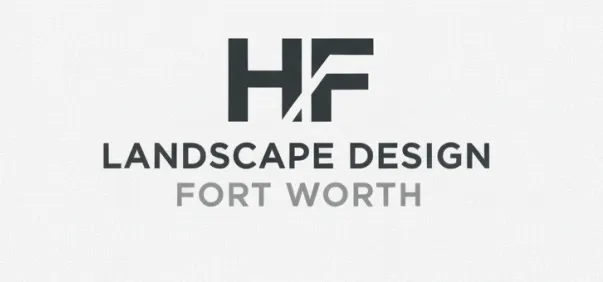Irrigation Installation Fort Worth
Irrigation Installation in Fort Worth
So you need a sprinkler system that actually works, right? That's what we do. Irrigation installation is designing and installing a complete watering system for your property—getting water to every part of your landscape efficiently without waste or dry spots. We've installed irrigation systems all over Fort Worth—older homes in Berkeley that never had systems before, new construction in Woodland Springs needing complete setup, commercial properties near Alliance requiring complex multi-zone systems. Our clay soil here makes watering tricky—doesn't absorb water quickly, holds moisture unevenly, causes runoff if you apply too much too fast. Plus our summers are brutal—weeks over 100 degrees where plants need consistent water or they're toast. Manual watering with hoses? You're spending hours every week and still missing areas or overwatering others.
Here's the thing about irrigation in Fort Worth—you really need it if you want landscape surviving summer without looking terrible or requiring massive water bills from running hoses constantly. We've seen properties without irrigation—brown lawns by July, dead shrubs in beds, homeowners giving up and letting everything go dormant or die. Proper irrigation system keeps everything alive and healthy with way less water than most people use hand watering, because systems deliver water efficiently right where plants need it instead of spraying all over driveways and sidewalks. Plus automated controller means watering happens on schedule whether you're home, at work, or on vacation. Your landscape doesn't care if you're busy—it needs water during heat regardless.
We handle complete irrigation installation—site assessment and system design, trenching and pipe installation, sprinkler head placement and adjustment, controller installation and programming, backflow prevention and proper connection to water supply. Not just throw some sprinklers in ground and hope it works. Engineered system designed specifically for your property—proper zones based on plant needs and sun exposure, adequate coverage without overspray waste, appropriate pressure and flow throughout system, quality components lasting years not failing after one season.
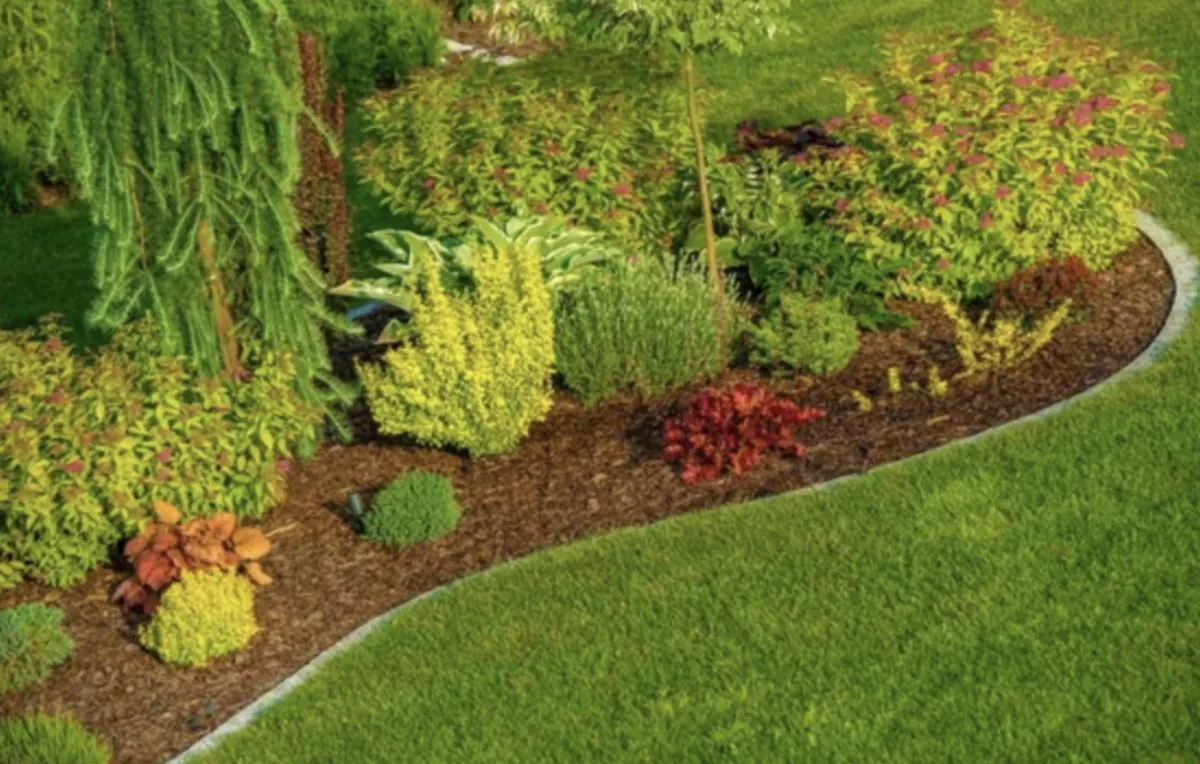
Complete System Design Process
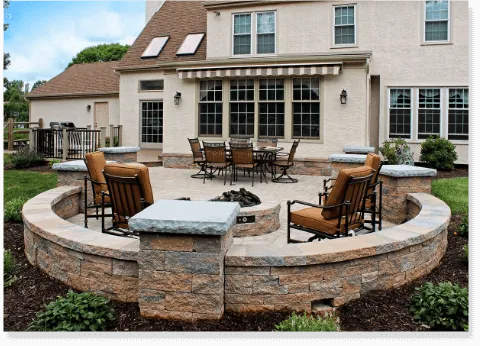
Property assessment and measurement—walking property noting landscape areas, measuring zones accurately, identifying water source location and available pressure, understanding sun exposure and plant watering needs. Before installing anything we assess your specific property. Not every yard's the same. Sunny front yard needs different approach than shady back beds. Lawn areas need different coverage than shrub beds. We measure everything, note elevation changes, identify where water supply connects, check available water pressure and flow. Design based on your actual property conditions, not generic template assuming everything's flat and identical.
Zone planning based on hydrozones—grouping areas with similar water needs, separating lawn from beds, accounting for sun versus shade exposure, designing efficient coverage for each zone. Proper zone design is critical. You don't water shady bed same as full-sun lawn—different plants, different water needs, different application rates. We design zones grouping similar areas together—front lawn as separate zone from back lawn if exposure differs significantly, sunny beds separate from shade beds, high-water-need plants separate from drought-tolerant areas. Lets you water everything appropriately without wasting water on areas not needing it or under-watering areas needing more.
Head selection and placement planning—choosing appropriate sprinkler types for each area, calculating spacing for complete coverage, avoiding overspray onto hardscape, positioning heads for efficient water distribution. Different areas need different sprinkler heads. Lawn gets spray heads or rotors depending on area size. Narrow strips need specific head types avoiding overspray. Beds might get drip irrigation or low-flow bubblers depending on plants and layout. We select appropriate heads for each location and plan placement ensuring complete coverage without gaps or excessive overlap wasting water.
Pipe sizing and layout design—determining proper pipe sizes for flow requirements, planning main line and lateral line routes, minimizing trenching through high-traffic areas, designing system for adequate pressure at all heads. Undersized pipes cause pressure problems—heads at end of zones don't pop up properly or coverage suffers. We calculate flow requirements and size pipes appropriately. Main lines sized to carry total system flow, lateral lines sized for zone requirements. Layout planned minimizing disruption during installation while ensuring proper system performance.
Controller and valve location planning—positioning controller conveniently for access and programming, placing valve boxes for service access, planning wire runs from controller to valves, ensuring proper drainage around valve locations. Controller needs location that's accessible for programming and adjustments but protected from weather and damage. Valve boxes need placement that's serviceable but not in middle of high-traffic areas where they're constantly getting hit. We plan locations making sense for your property layout and usage patterns.
Professional Installation Process
Trenching and pipe installation—cutting trenches to proper depth, installing main and lateral lines, making connections at proper angles and with appropriate fittings, pressure testing before backfilling. We trench throughout property installing pipe network—main line from water source to valve locations, lateral lines from valves to sprinkler head locations. Proper depth matters—shallow pipes get damaged, deep trenches waste effort. We install at appropriate depth for Fort Worth conditions, make solid connections using quality fittings, test system under pressure before covering anything up. Catching leaks or connection problems during installation beats discovering them after everything's buried.
Sprinkler head installation and adjustment—installing heads at proper height and angle, adjusting spray patterns for intended coverage, ensuring heads aren't obstructed by plants, setting appropriate arc and radius for each location. Every head gets installed carefully—correct height relative to surrounding grade, proper adjustment for intended coverage area, positioned avoiding conflicts with plants or hardscape. After installation we run each zone adjusting every head—spray pattern, arc, radius—ensuring coverage is right before calling installation complete. Properly adjusted heads make difference between efficient system and one wasting water while missing areas.
Valve and controller installation—installing valve manifolds with proper drainage, running control wires from controller to all valves, mounting controller in planned location, connecting to power source, testing all electrical connections. Valve installation requires attention—manifolds need slight slope for drainage, valves need quality connections to pipe, control wires need proper routing and connections. Controller gets mounted securely with weather protection, wired correctly to all zones, connected to power safely. We test complete electrical system ensuring every zone activates properly from controller before finishing installation.
Backflow preventer installation and testing—installing appropriate backflow device per code requirements, connecting properly to water supply, testing device operation, ensuring compliance with local regulations. Fort Worth requires backflow prevention on irrigation systems—protects water supply from potential contamination. We install appropriate backflow preventer for your system type, make proper connections, test device ensuring it's working correctly. Device needs periodic testing by certified tester—we provide information about testing requirements and can handle that service going forward.
System startup and programming—charging system carefully avoiding pipe damage, checking all zones thoroughly for coverage and problems, programming controller for appropriate watering schedule, adjusting timing and frequency for Fort Worth conditions. Once installation's complete we start system carefully—gradually bringing it to full pressure avoiding water hammer damage to pipes. Run every zone checking coverage, identifying any heads needing adjustment, confirming no leaks or installation problems. Program controller with appropriate schedule for current season and your landscape needs. Test complete system ensuring everything operates correctly before finishing job.
System Components and Quality
Controller technology and features—smart controllers adjusting for weather conditions, Wi-Fi connectivity for remote programming, multiple programs for different zones, rain and freeze sensors preventing unnecessary watering. We install quality controllers with features making sense for your situation. Basic properties might just need simple controller with rain sensor. Properties with varied landscape might benefit from smart controller adjusting watering based on weather data. Commercial properties often want Wi-Fi access for remote management. We discuss options and install controller matching your needs and budget.
Sprinkler head types and applications—spray heads for smaller lawn areas and beds, rotors for larger lawn zones, drip irrigation for beds and individual plants, bubblers for shrubs and trees, MP rotators for efficient medium-range coverage. Different areas need different head types. Small front lawn might use spray heads—quick coverage, good for tight areas. Large back lawn needs rotors—longer range, more efficient for bigger zones. Beds often work better with drip irrigation or bubblers—water goes directly to root zones without waste. We use appropriate head types for each area, not same head everywhere regardless of whether it's right application.
Pipe and fitting quality—commercial-grade PVC pipe rated for pressure, quality fittings at all connections, proper glue and primer application, swing joints at heads preventing breakage. We use quality materials throughout system. Commercial-grade pipe, not cheap thin-wall stuff cracking under pressure or breaking when ground shifts. Quality fittings making solid connections. Proper installation techniques ensuring connections don't leak. Swing joints under every head—prevents broken heads when ground shifts or someone steps on sprinkler wrong. Costs little more upfront, saves money long-term avoiding constant repairs and failures.
Valve quality and configuration—commercial-grade valves with quality solenoids, proper valve sizing for zone flow, manifold configuration allowing easy service, valve boxes with adequate drainage. Valves are heart of irrigation system—control water flow to each zone. We install quality valves sized appropriately for zone requirements, configure manifolds logically for service access, use valve boxes with drain holes preventing water accumulation. Quality valves last years with minimal problems. Cheap valves fail constantly—solenoids burn out, diaphragms fail, you're replacing valves every few seasons instead of getting decade-plus service.
Wire and connection quality—direct burial wire rated for underground use, waterproof wire connections at all splices, proper routing avoiding damage, quality connections at controller. Electrical system needs proper materials and installation. Underground wire rated for burial and moisture exposure. Waterproof connections—not just wire nuts that'll corrode in six months. Careful routing avoiding areas where wire gets cut by future digging. Solid connections at controller ensuring reliable zone operation. Electrical problems are major headaches with irrigation—we install systems avoiding those problems through quality materials and proper techniques.
Why Professional Installation Matters
Proper design preventing problems—adequate coverage without gaps or excessive overlap, appropriate zones based on plant needs, correct pipe sizing for pressure and flow, avoiding common installation mistakes. DIY irrigation often has design problems—missed areas, overspray waste, undersized pipes causing pressure issues, zones mixing plants with different water needs. Professional design considers everything—coverage, pressure, flow, plant requirements, Fort Worth conditions. Gets system working right from start instead of constant adjustments and modifications trying to fix design flaws.
Code compliance and permits—meeting Fort Worth requirements, proper backflow prevention installation, correct trenching depths and locations, approved connection to water supply. Irrigation installation has code requirements—backflow prevention, connection methods, sometimes permits depending on scope. We handle compliance—proper backflow device installed and tested, connections meeting code, documentation if permits required. DIY systems often skip backflow prevention or install it wrong, creating problems when city checks or house sells requiring correction.
Quality installation techniques—proper trenching without damaging property, solid pipe connections that don't leak, correctly adjusted heads providing intended coverage, professional wire connections preventing electrical problems. Installation quality matters as much as design. Perfect design installed poorly still gives lousy results. We trench carefully minimizing property damage, make solid connections throughout system, install and adjust heads properly, handle electrical correctly. Installation done right means system works as designed without constant leaks, electrical failures, or coverage problems.
Warranty and service support—standing behind installation work, correcting any problems quickly, providing ongoing service and maintenance, relationship for future needs and modifications. We warranty our installations—if something fails from installation problems we fix it. Plus we're here for ongoing service, maintenance, repairs, modifications as your landscape changes. One-time installer disappears after job—good luck getting problems addressed. We're established business maintaining relationships with customers over years, handling whatever irrigation needs come up.
Equipment and expertise—professional trenching equipment, pipe cutting and connection tools, pressure testing capability, years of Fort Worth installation experience. Proper installation needs right equipment. Commercial trencher cutting clean lines efficiently. Pipe cutters and gluing equipment. Pressure testing gear checking system before backfilling. We've got professional tools and experienced crews knowing Fort Worth conditions—how clay soil behaves, what depth works here, how systems perform in our climate. Experience preventing mistakes that create problems down the road.
Frequently Asked Questions
How much does irrigation system installation cost?
Depends on property size and system complexity. Small residential lot with basic system might run $3,000 to $5,000. Typical quarter-acre property usually $4,500 to $8,000 depending on zones needed and landscape layout. Larger properties, complex landscapes with multiple hydrozones, properties needing significant trenching through difficult areas—costs more obviously. We provide detailed quotes after assessing your property and designing appropriate system. Most homeowners find irrigation pays for itself over few years through water savings compared to hand watering inefficiently, plus value of not losing expensive landscaping to summer heat stress.
How long does installation take?
Most residential systems install in two to four days depending on property size and complexity. Small simple yard might be done in two days. Larger property with extensive landscaping might take four or five days. Weather affects timeline—can't trench in heavy rain. We provide realistic schedule during proposal and update you if anything changes. Most delays come from weather or unexpected underground obstacles like unmarked utilities, not poor planning.
Will installation damage my existing landscape?
We minimize disruption but trenching requires cutting through turf and sometimes beds. Lawn trenches get carefully backfilled and either re-sodded or seeded depending on time of year and your preference. Bed trenching gets backfilled and mulched matching existing appearance. Most property looks normal within few weeks after installation as disturbed areas recover. We're careful during work—hand-digging around existing plants we're keeping, routing trenches to avoid root zones of valuable trees when possible, protecting hardscape and structures. Some temporary disruption is unavoidable but we minimize damage and restore disturbed areas.
Do you install drip irrigation for beds?
Yeah, drip irrigation works great for Fort Worth bed applications—delivers water directly to plant root zones with minimal waste, reduces disease problems from overhead watering, uses significantly less water than spray irrigation. We install drip systems in beds regularly—either complete property drip system or drip zones for beds combined with spray irrigation for lawn areas. Drip requires more maintenance than spray systems—emitters can clog, lines need periodic flushing—but water efficiency and plant health benefits often make it worthwhile especially for properties with extensive bed areas.
Can you add irrigation to property with existing mature landscaping?
Absolutely—we install systems in established landscapes regularly. Requires more careful trenching around existing plants, sometimes routing trenches to avoid root systems, protecting established plantings during installation. Takes more time and care than open-lot installation but completely doable. We assess property identifying best routes for lines minimizing impact on existing plants, hand-dig when necessary near valuable specimens, restore disturbed areas to match existing landscape. Installing irrigation in mature landscape beats losing plants you've invested years growing just because manual watering isn't keeping up during Fort Worth summers.
Call us for professional irrigation installation throughout Fort Worth. We've designed and installed systems all over—from small residential yards to large estates to commercial properties. Your landscape needs consistent watering surviving our summers, and hand watering just doesn't cut it for most people. Quality irrigation system keeps everything healthy efficiently without you spending hours weekly dragging hoses around. We design systems specifically for your property—proper coverage, appropriate zones, efficient operation—install everything professionally with quality materials, program controller for Fort Worth conditions. System that works right from day one and keeps working for years.
Backflow Prevention
Backflow prevention protects drinking water supply:
✓ Device Selection – Appropriate type for system and local code requirements
✓ Proper Installation – Correct orientation and support preventing failure
✓ Above-Ground Placement – Accessible locations for required annual testing
✓ Freeze Protection – Insulation or enclosures in exposed locations
✓ Testing Ports – Accessible connections for certification testing
Controller Installation and Programming
Controller installation and programming manages system operation:
✓ Smart Controller Options – Weather-based systems adjusting for conditions automatically
✓ Zone Programming – Appropriate run times for plant types and soil conditions
✓ Seasonal Adjustments – Modified schedules matching plant needs through year
✓ Rain Sensor Integration – Automatic shutoff during precipitation preventing waste
✓ User-Friendly Interface – Systems homeowners can understand and adjust when needed
Pressure Regulation
Pressure regulation ensures proper system function:
✓ System Pressure Testing – Measuring available pressure at connection points
✓ Pressure Reducing Valves – Installing when municipal pressure exceeds system requirements
✓ Zone Balancing – Ensuring consistent pressure across all zones
✓ Drip System Regulation – Reducers providing appropriate pressure for emitter function
✓ Head Performance – Proper pressure ensuring designed coverage patterns
Water Efficiency Features
Water efficiency features reduce consumption and costs:
✓ Hydrozoning – Grouping plants with similar needs for efficient scheduling
✓ Matched Precipitation – Heads delivering water at rates soil can absorb
✓ Smart Controllers – Technology reducing water use 30-50% versus traditional timers
✓ Rain Sensors – Preventing operation during precipitation
✓ Soil Moisture Sensors – Advanced systems monitoring actual soil conditions
Why Professional Irrigation Installation Matters
Fort Worth's climate and municipal requirements make professional irrigation installation valuable for maximizing landscape health while minimizing water waste. Clay soil's slow absorption creates runoff when systems apply water faster than soil accepts it. Improper zone design mixing sun and shade areas, or lawns and beds, wastes water applying too much to some plants while others receive too little. Poor head placement creates gaps where plants struggle or excessive overlap wasting water.
We've installed irrigation systems throughout Fort Worth neighborhoods like Tanglewood, Westover Hills, and River Crest, learning which designs actually work efficiently in clay soil, how to maximize coverage within pressure limitations, and which technologies provide best value for homeowners. Systems designed for Fort Worth conditions with appropriate zones, proper head spacing, and smart controllers keep landscapes healthy while using significantly less water than poorly designed installations.
Professional installation also ensures code compliance and proper function. Backflow preventers must meet Fort Worth requirements and pass annual testing. Systems need proper pressure for coverage without misting or fogging. Controllers require programming matching plant needs and watering restrictions. DIY installations frequently have issues requiring expensive corrections or replacement within years.
Frequently Asked Questions
How much does irrigation installation cost? Irrigation costs depend on property size, zone quantities, system complexity, and features like smart controllers or drip systems. We provide detailed estimates after property assessment and design.
How many zones does my property need? Zone quantities depend on property size, plant variety, sun exposure, and water pressure. Most residential properties need 4-8 zones for complete coverage with appropriate separation.
What's the difference between spray heads and rotors? Spray heads have fixed patterns covering smaller areas (up to 15 feet). Rotors rotate covering larger areas (15-50+ feet) more efficiently for lawns.
Do I need a smart controller? Smart controllers significantly reduce water use through weather-based adjustments. They're particularly valuable in Fort Worth where conditions vary dramatically through seasons and watering restrictions may apply.
How long does irrigation installation take? Installation typically requires 2-4 days for most residential properties depending on size and complexity. Larger properties or complex systems may need additional time.
Do you provide warranties? Yes, we warranty installation workmanship and coordinate manufacturer warranties on equipment. Warranty terms vary by component and manufacturer.
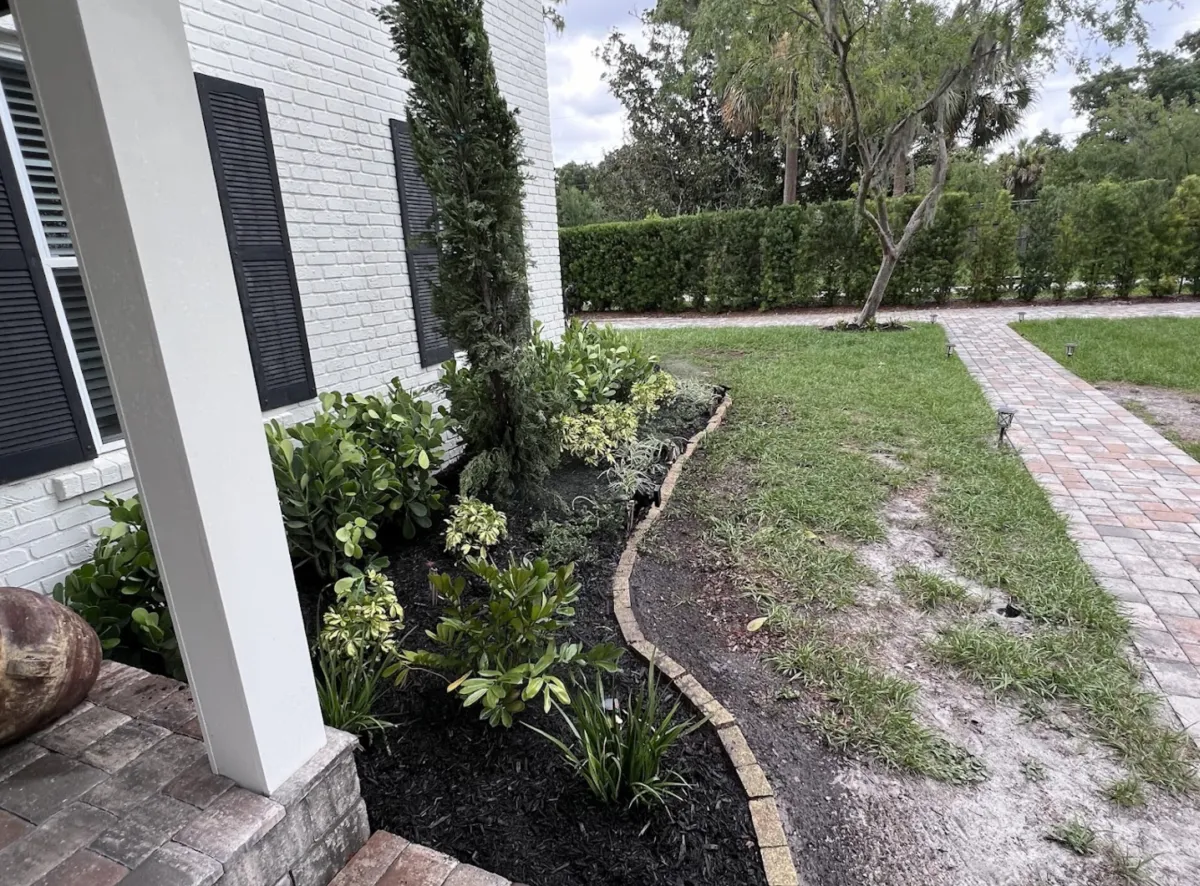
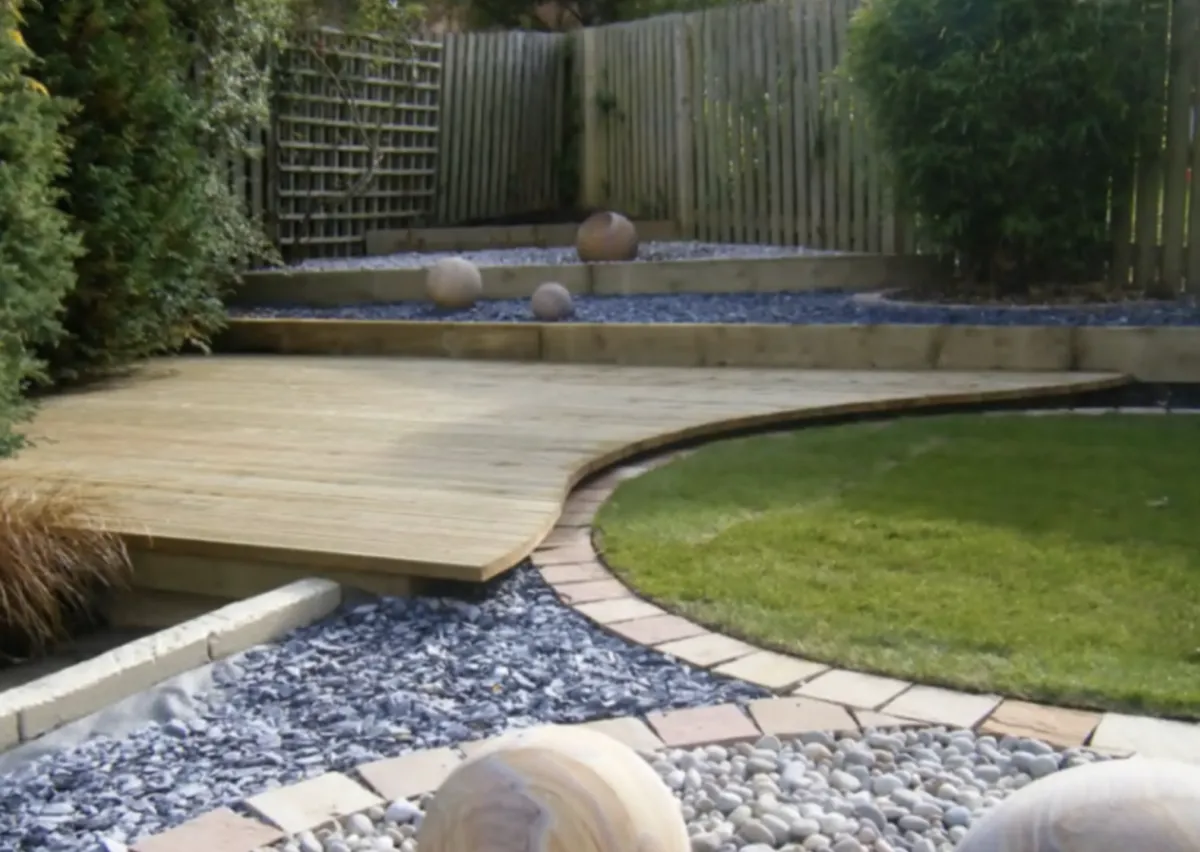
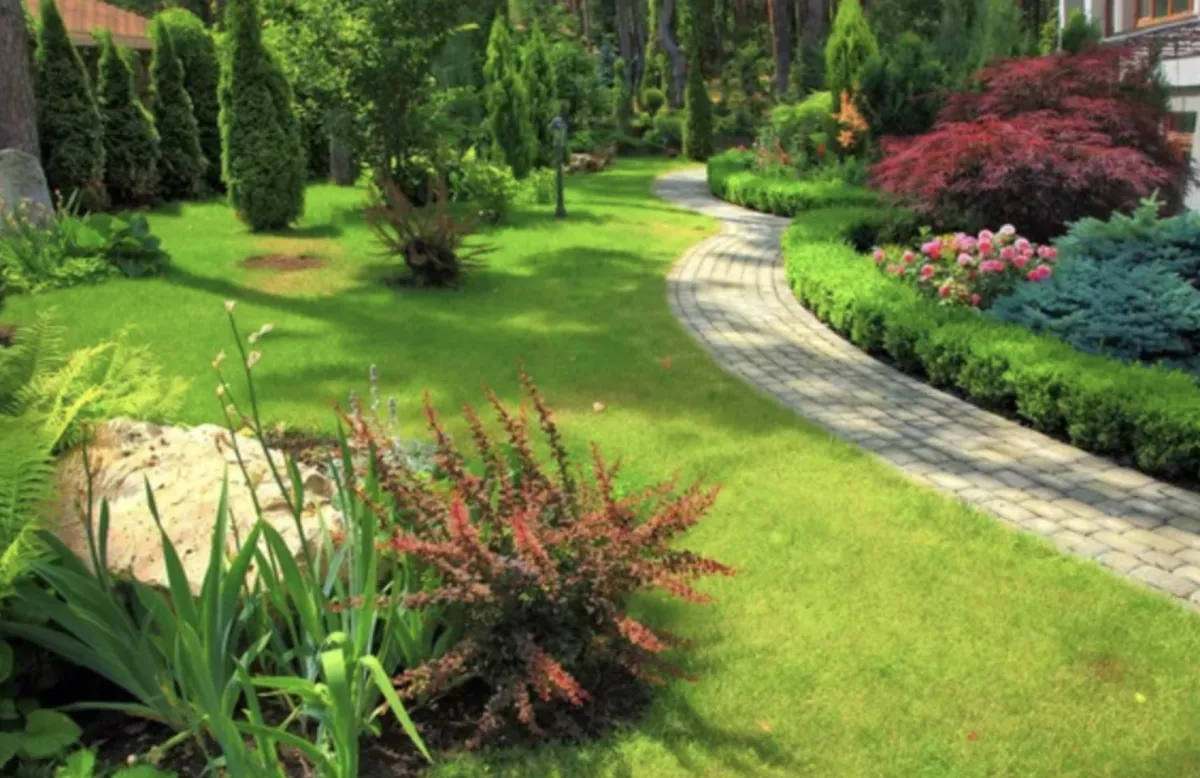
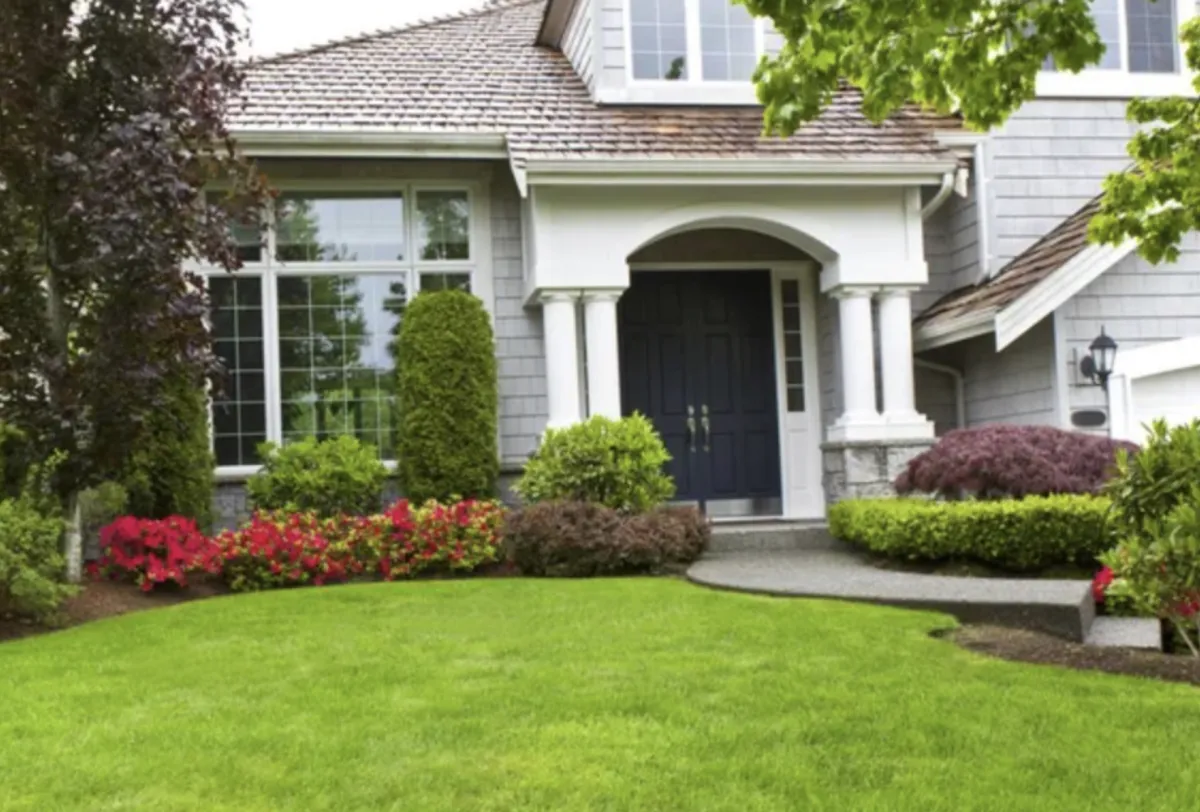
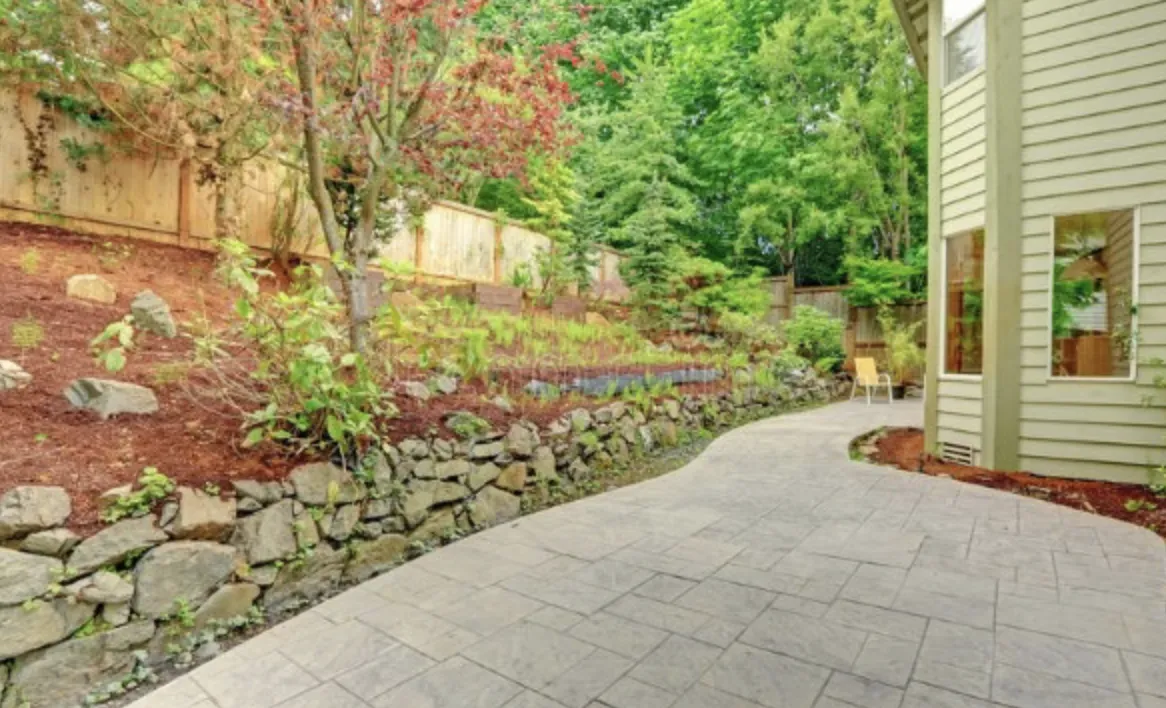



See What Our Customer Say About Us
Sarah M., Fort Worth, TX

“I can’t say enough good things about HF Landscape Design Fort Worth. They totally transformed our backyard into something out of a magazine — and they did it on time and within our budget. The team showed up early every day, cleaned up after themselves, and really listened to what we wanted. You can tell they actually care about the little details, not just getting the job done. Our neighbors keep stopping by asking who did the work — we tell everyone to call HF Landscape Design. Best decision we made for our home!”
Daniel R., Fort Worth, TX

“HF Landscape Design Fort Worth really blew us away. We had a plain front yard before, and now it looks like something you’d see in a design show. They helped pick the right plants for the Texas heat and even added lighting that makes the place glow at night. Super easy to talk to and very professional — they made the whole thing stress-free. We’d hire them again in a heartbeat.”
Megan & Tyler H., Fort Worth, TX

“Our backyard was just dirt and weeds before HF Landscape Design came in. Now it’s the spot where we spend every weekend with friends. They built a patio, added flower beds, and somehow made it all feel natural like it was always meant to be there. You can tell they love what they do — every detail was perfect. Highly recommend them to anyone in Fort Worth wanting a yard they’ll actually use.”
Get Professional Irrigation Installation
Stop dealing with dead spots, water waste, or inefficient irrigation. Get professional irrigation installation providing consistent, efficient water delivery for Fort Worth landscapes.
Call (817) 580-3329 to schedule irrigation installation consultation. We'll design systems ensuring landscape health while maximizing water efficiency.
Service Areas: Fort Worth, Tanglewood, Ridglea Hills, River Crest, Westover Hills, Berkeley, Monticello, Mistletoe Heights, and surrounding communities.
Frequently Asked Questions
What is the average cost of landscape design?
Landscape design costs in Fort Worth typically range from $2,000 to $8,000 depending on property size—project complexity—level of detail required. Simple front yard designs for smaller properties might run $1,500 to $3,000. Comprehensive landscape plans for larger properties with detailed planting plans—hardscape designs—irrigation layouts—lighting plans usually cost $5,000 to $10,000 or more. We typically credit design fees toward installation if you proceed with us for the work. Design-only services cost more since we're not recouping fees through installation. Most clients in areas like Tanglewood or Westover Hills invest in detailed designs because their properties warrant professional planning. Newer neighborhoods with simpler yards might need less extensive design work.
What does it cost for a landscape design?
Design fees depend on project scope and what you need included. Basic conceptual designs showing general layout—plant groupings—hardscape locations run $1,500 to $3,000 for typical residential properties. Detailed construction-level plans with exact plant specifications—hardscape dimensions—grading plans—irrigation zone maps cost $4,000 to $8,000 or higher for complex projects. Commercial landscape design involves additional complexity and typically costs more. We discuss your specific needs during initial consultation and provide design fee quotes based on actual scope. Design fees get credited toward installation when you hire us for the work. Fort Worth properties with challenging conditions—significant slopes—drainage issues—often need more detailed planning which affects design costs.
What is the difference between a landscape architect and a landscape designer?
Landscape architects have formal education—state licensing—ability to stamp engineering drawings for permits. They handle complex projects requiring grading engineering—structural calculations—commercial site development—regulatory compliance. Landscape designers focus on plant selection—aesthetic layout—residential design without engineering components. In Fort Worth, landscape architects are required for certain commercial projects—retaining walls over specific heights—projects needing engineered drainage solutions. Residential projects usually work fine with landscape designers unless you've got significant slope issues—major grading needs—structures requiring engineering stamps. Landscape architects cost more but bring technical expertise for complex projects. Most residential landscapes in neighborhoods like Arlington Heights or Ridglea work well with landscape designers. Larger estates or properties with serious site challenges benefit from landscape architectural services.
Why is landscape design so expensive?
Professional landscape design involves considerable time—expertise—detailed planning work. Designers spend hours on site assessment—measuring—analyzing drainage and sun patterns—researching plant options for specific conditions. Creating scaled plans requires CAD software skills—design knowledge—understanding of Fort Worth's climate and soil conditions. Good designers prevent expensive installation mistakes—plant failures—drainage problems that cost far more to fix later. You're paying for years of experience knowing what works in North Texas clay soil—which plants survive July heat—how to design irrigation zones efficiently. Design fees also cover revisions—client meetings—coordination with contractors during installation. Cheap or free designs often mean cookie-cutter plans—inexperienced designers—or design costs hidden in inflated installation prices. Professional design upfront saves money long-term by getting things right the first time.
What is the rule of 3 in landscaping?
The rule of three suggests planting in odd-numbered groups—typically three plants—creates more natural and visually appealing arrangements than even numbers. Three plants or features create triangular compositions—visual interest—balance without formal symmetry. This applies to groupings of the same plant variety or repeating design elements throughout the landscape. In Fort Worth landscapes, you might see three crape myrtles anchoring a bed—three groupings of ornamental grasses—three boulders in a natural arrangement. The rule helps avoid the static look of paired plantings or single specimens. Works for plants of various sizes—repetition of colors—hardscape feature placement. Not a strict requirement but a helpful design principle creating more dynamic landscapes. We use the rule of three alongside other design principles—proper spacing—mature size consideration—Fort Worth-appropriate plant selection.
What is a realistic landscaping budget?
Realistic budgets for Fort Worth landscape projects typically start around $10,000 for basic front yard renovations and run $20,000 to $50,000 for complete front and backyard transformations with hardscaping. Simple refreshes—new plants—mulch—irrigation repairs might cost $5,000 to $8,000. Projects including patios—retaining walls—outdoor kitchens—extensive plantings easily reach $50,000 to $100,000 or more. Budget depends on property size—existing conditions—how much hardscape you want—plant material quality and maturity. Fort Worth's clay soil often requires additional drainage work affecting costs. Established neighborhoods like Monticello with mature landscapes might need less work than new construction in Walsh Ranch starting from dirt. Quality materials and experienced installation cost more upfront but last longer and perform better in our climate.
